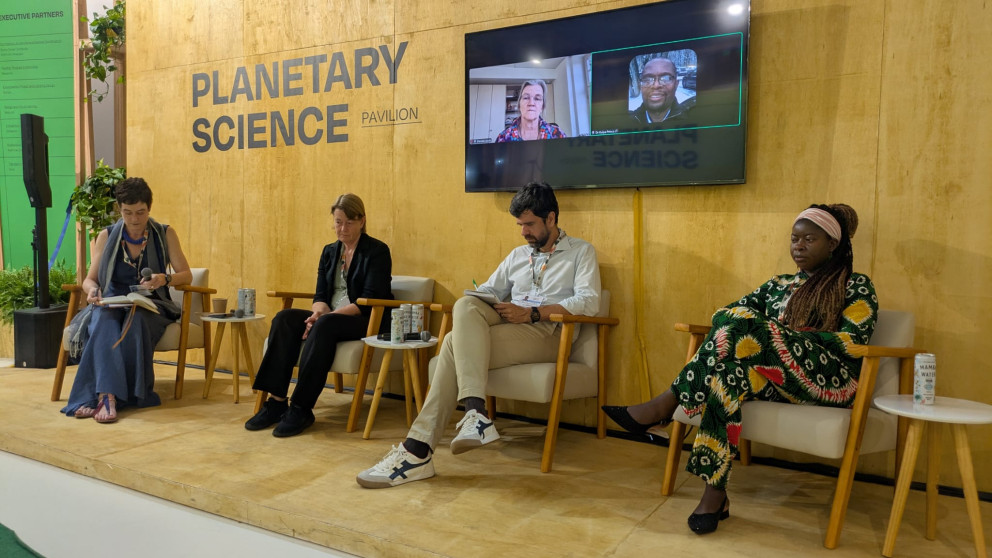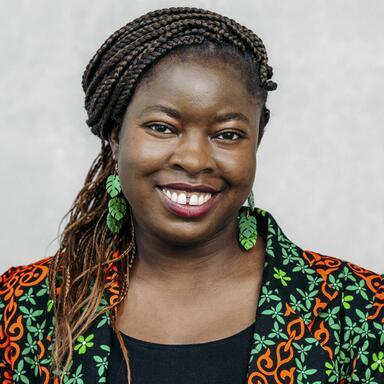Three Decades of COP Negotiations: What’s Next?
28.11.2025

It's been three decades of ongoing climate negotiations, and most of the time, they end in deadlock. By now, we should all understand that it will take more than carbon trading to meet the Paris Agreement's 1.5 °C target. We must drastically reduce our greenhouse gas emissions, and that means phasing out fossil fuels. According to the Intergovernmental Panel on Climate Change, limiting global warming to below 1.5 degrees requires rapid, large-scale, and unprecedented changes across all sectors of society, with clear benefits for both people and ecosystems.
Instead, what we often see at climate conferences is politics played out over the interests of the people. That’s why the people’s summit at this year’s COP was so timely: it showed that solving the climate crisis is a non-negotiable for most people. The same goes for phasing out fossil fuels. We also appreciated the positive addition of two days dedicated to agriculture and food security, along with the pavilions for small island nations like Guyana and Moana, and the participation of indigenous peoples across various meeting zones. On the Agriculture Day, I joined as panel to discuss “Linking climate research to the field: Adaptive pathways for Agriculture and food security” at an event jointly organized by the Potsdam Institute for Climate Impact Research (PIK) and Climate Service Center Germany (GERICS) and moderated by Dr. Kirsten Dunlop, CEO of Climate KIC. The event opened with a presentation by Nadine Grimm-Pampe, research coordinator for Climate Resilience Working Group Adaptation in Agricultural Systems at PIK. Among the other panelists were Dr Daniela Jacobs from GERICS, Dr Ingrid Jacobs; Bread for the World, Raphael Leao; WFP, and Dr Prince Kuipa, Zimbabwe Farmers’ Union. The event was a welcome opportunity for me to discuss my ongoing research at RIFS on the nexus of flood and food insecurity. Participating as a country delegate enabled me both to listen and add my voice to negotiations.
Looking to the conference outcomes, it remains unclear whether the long-term commitment to provide $100 billion annually in climate financing will be fulfilled. Nonetheless, states have pledged to increase this commitment, established initiated at COP15 in 2009, to $300 billion per year, with the aim of mobilizing $1.3 trillion in international climate finance by 2035. Yet again, at COP30, it was decided that the implementation of the New Collective Quantified Goal (NCQG) is to be delayed until 2028. But do we really have time to wait?
The reality is that even $300 billion annually is not enough to address the past, present, and future climate crises faced by developing countries (the Global South). In Nigeria, even a single impact from climate change, such as a flood, can cost billions of dollars because it affects all aspects of our society — from the loss of agricultural products and livelihoods to the destruction of property, loss of lives, and infrastructure. We have suffered more or greater losses from droughts and other crises. Currently, other countries in the Global South are experiencing impacts similar to or worse than those in Nigeria. Even if climate finance is properly implemented, will $300 billion be enough to effectively curb the climate crisis in these countries? Invariably, current climate finance does not match the scale of existing climate projections.
Furthermore, what I would have liked to see at COP30 is a focus on the non-economic aspects of loss and damage. The loss and damage fund isn't just about providing money; it's also about pursuing climate justice in all parts of society. The non-economic aspects of loss and damage still need to be measured. How do we quantify lives lost in floods, heatwaves, or droughts? Neither the communities whose histories have been erased by rising sea levels and forced displacement, nor the refugees themselves, can ever have what they’ve lost restored—these changes are irreversible. The climate crisis is multifaceted, including heatwaves, floods, and other disasters that countries like Nigeria face. The longer these issues remain unaddressed, the more complicated they become. That’s why, as a fellow at the Research Institute for Sustainability, I’m studying the connection between floods and food insecurity with an anticipatory approach that aims to eliminate or reduce the impacts of these crises, because once a crisis happens, we can only deal with the aftermath.
Undoubtedly, we still have a long way to go in fulfilling our climate commitments, even after 30 years. This is a time to reflect on what we can do differently over the next 20 years and identify where the gaps are. When COP50 rolls around, will we still be negotiating or actually implementing climate promises? Or will there still be a substantial shortfall in climate pledges and funding? No country has fully met its Nationally Determined Contributions, and with every breach of our climate commitments, we move further from realizing the goals of the Paris Agreement, not closer.
